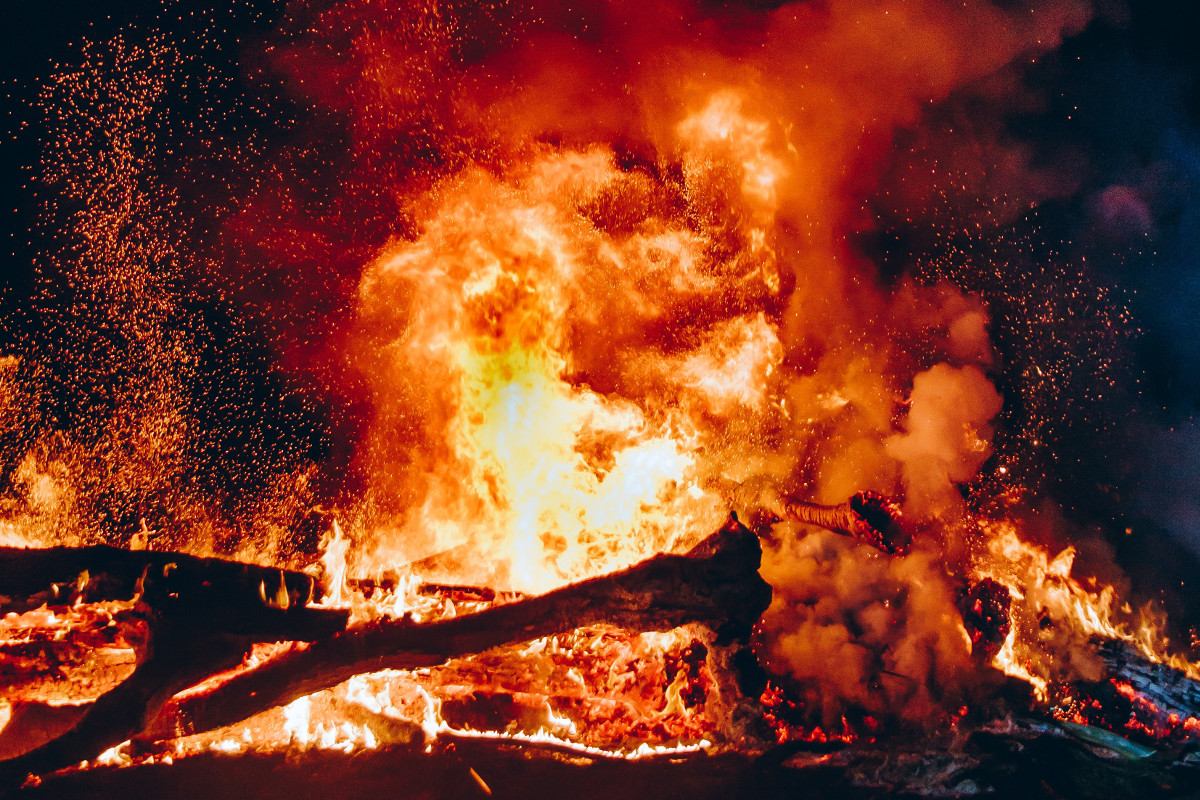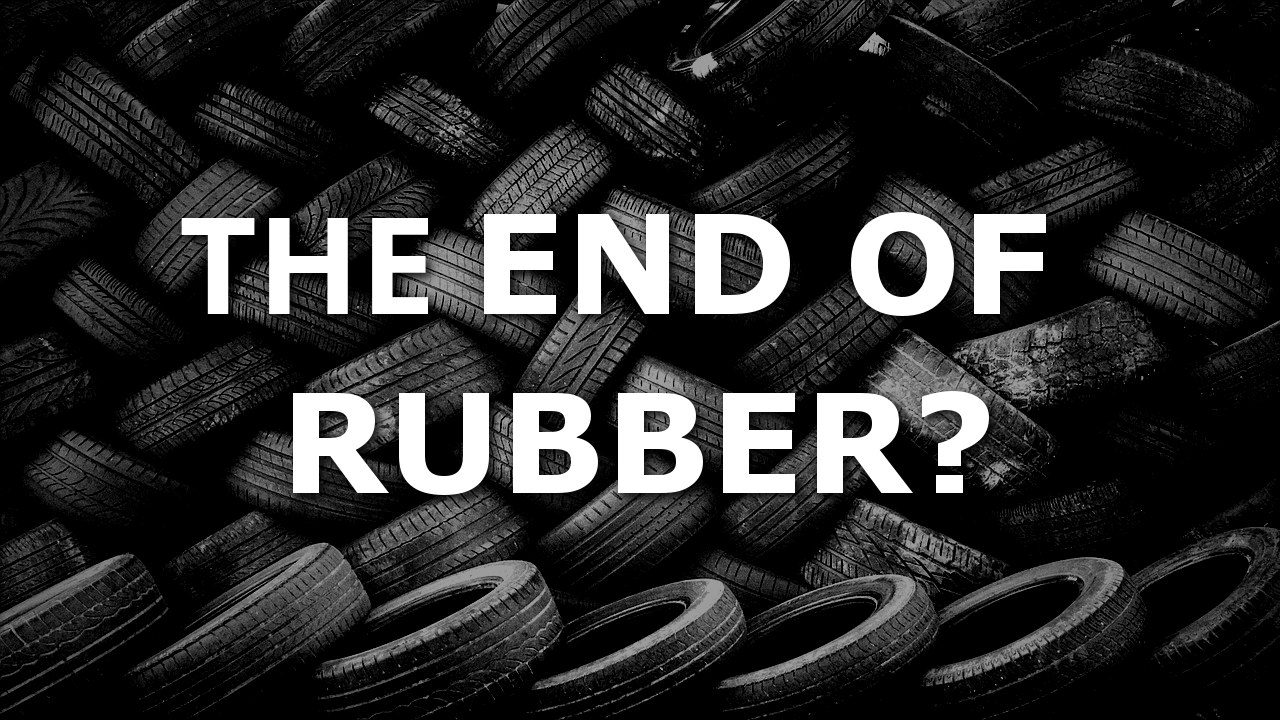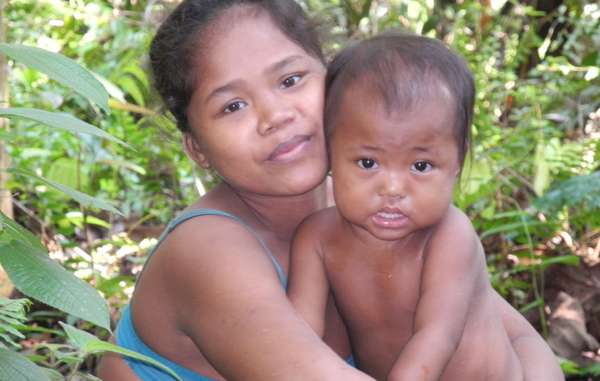
by DGR News Service | Oct 18, 2021 | Agriculture, Biodiversity & Habitat Destruction, Climate Change, Colonialism & Conquest, Culture of Resistance, Listening to the Land, The Problem: Civilization
This is an excerpt from the book Bright Green Lies, P. 1-7
By LIERRE KEITH
“Once our authoritarian technics consolidates its powers, with the aid of its new forms of mass control, its panoply of tranquilizers and sedatives and aphrodisiacs, could democracy in any form survive? That question is absurd: Life itself will not survive, except what is funneled through the mechanical collective.”1
LEWIS MUMFORD
There is so little time and even less hope here, in the midst of ruin, at the end of the world. Every biome is in shreds. The green flesh of forests has been stripped to grim sand. The word water has been drained of meaning; the Athabascan River is essentially a planned toxic spill now, oozing from the open wound of the Alberta tar sands. When birds fly over it, they drop dead from the poison. No one believes us when we say that, but it’s true. The Appalachian Mountains are being blown to bits, their dense life of deciduous forests, including their human communities, reduced to a disposal problem called “overburden,” a word that should be considered hate speech: Living creatures—mountain laurels, wood thrush fledglings, somebody’s grandchildren—are not objects to be tossed into gullies. If there is no poetry after Auschwitz, there is no grammar after mountaintop removal. As above, so below. Coral reefs are crumbling under the acid assault of carbon. And the world’s grasslands have been sliced to ribbons, literally, with steel blades fed by fossil fuel. The hunger of those blades would be endless but for the fact that the planet is a bounded sphere: There are no continents left to eat. Every year the average American farm uses the energy equivalent of three to four tons of TNT per acre. And oil burns so easily, once every possibility for self-sustaining cultures has been destroyed. Even the memory of nature is gone, metaphrastic now, something between prehistory and a fairy tale. All that’s left is carbon, accruing into a nightmare from which dawn will not save us. Climate change slipped into climate chaos, which has become a whispered climate holocaust. At least the humans whisper. And the animals? During the 2011 Texas drought, deer abandoned their fawns for lack of milk. That is not a grief that whispers. For living beings like Labrador ducks, Javan rhinos, and Xerces blue butterflies, there is the long silence of extinction.
We have a lot of numbers. They keep us sane, providing a kind of gallows’ comfort against the intransigent sadism of power: We know the world is being murdered, despite the mass denial. The numbers are real. The numbers don’t lie. The species shrink, their extinctions swell, and all their names are other words for kin: bison, wolves, black-footed ferrets. Before me (Lierre) is the text of a talk I’ve given. The original version contains this sentence: “Another 120 species went extinct today.” The 120 is crossed clean through, with 150 written above it. But the 150 is also struck out, with 180 written above. The 180 in its turn has given way to 200. I stare at this progression with a sick sort of awe. How does my small, neat handwriting hold this horror? The numbers keep stacking up, I’m out of space in the margin, and life is running out of time.
Twelve thousand years ago, the war against the earth began. In nine places,2 people started to destroy the world by taking up agriculture. Understand what agriculture is: In blunt terms, you take a piece of land, clear every living thing off it—ultimately, down to the bacteria—and then plant it for human use. Make no mistake: Agriculture is biotic cleansing. That’s not agriculture on a bad day, or agriculture done poorly. That’s what agriculture actually is: the extirpation of living communities for a monocrop for and of humans. There were perhaps five million humans living on earth on the day this started—from this day to the ending of the world, indeed—and there are now well over seven billion. The end is written into the beginning. As earth and space sciences scholar David R. Montgomery points out, agricultural societies “last 800 to 2,000 years … until the soil gives out.”3 Fossil fuel has been a vast accelerant to both the extirpation and the monocrop—the human population has quadrupled under the swell of surplus created by the Green Revolution—but it can only be temporary. Finite quantities have a nasty habit of running out. The name for this diminishment is drawdown, and agriculture is in essence a slow bleed-out of soil, species, biomes, and ultimately the process of life itself. Vertebrate evolution has come to a halt for lack of habitat, with habitat taken by force and kept by force: Iowa alone uses the energy equivalent of 4,000 Nagasaki bombs every year. Agriculture is the original scorched-earth policy, which is why both author and permaculturist Toby Hemenway and environmental writer Richard Manning have written the same sentence: “Sustainable agriculture is an oxymoron.” To quote Manning at length: “No biologist, or anyone else for that matter, could design a system of regulations that would make agriculture sustainable. Sustainable agriculture is an oxymoron. It mostly relies on an unnatural system of annual grasses grown in a mono- culture, a system that nature does not sustain or even recognize as a natural system. We sustain it with plows, petrochemicals, fences, and subsidies, because there is no other way to sustain it.”4
Agriculture is what creates the human pattern called civilization. Civilization is not the same as culture—all humans create culture, which can be defined as the customs, beliefs, arts, cuisine, social organization, and ways of knowing and relating to each other, the land, and the divine within a specific group of people. Civilization is a specific way of life: people living in cities, with cities defined as people living in numbers large enough to require the importation of resources. What that means is that they need more than the land can give. Food, water, and energy have to come from somewhere else. From that point forward, it doesn’t matter what lovely, peaceful values people hold in their hearts. The society is dependent on imperialism and genocide because no one willingly gives up their land, their water, their trees. But since the city has used up its own, it has to go out and get those from somewhere else. That’s the last 10,000 years in a few sentences. Over and over and over, the pattern is the same. There’s a bloated power center surrounded by conquered colonies, from which the center extracts what it wants, until eventually it collapses. The conjoined horrors of militarism and slavery begin with agriculture.
Agricultural societies end up militarized—and they always do—for three reasons. First, agriculture creates a surplus, and if it can be stored, it can be stolen, so, the surplus needs to be protected. The people who do that are called soldiers. Second, the drawdown inherent in this activity means that agriculturalists will always need more land, more soil, and more resources. They need an entire class of people whose job is war, whose job is taking land and resources by force—agriculture makes that possible as well as inevitable. Third, agriculture is backbreaking labor. For anyone to have leisure, they need slaves. By the year 1800, when the fossil fuel age began, three-quarters of the people on this planet were living in conditions of slavery, indenture, or serfdom.5 Force is the only way to get and keep that many people enslaved. We’ve largely forgotten this is because we’ve been using machines—which in turn use fossil fuel—to do that work for us instead of slaves. The symbiosis of technology and culture is what historian, sociologist, and philosopher of technology Lewis Mumford (1895-1990) called a technic. A social milieu creates specific technologies which in turn shape the culture. Mumford writes, “[A] new configuration of technical invention, scientific observation, and centralized political control … gave rise to the peculiar mode of life we may now identify, without eulogy, as civilization… The new authoritarian technology was not limited by village custom or human sentiment: its herculean feats of mechanical organization rested on ruthless physical coercion, forced labor and slavery, which brought into existence machines that were capable of exerting thousands of horsepower centuries before horses were harnessed or wheels invented. This centralized technics … created complex human machines composed of specialized, standardized, replaceable, interdependent parts—the work army, the military army, the bureaucracy. These work armies and military armies raised the ceiling of human achievement: the first in mass construction, the second in mass destruction, both on a scale hitherto inconceivable.”6
Technology is anything but neutral or passive in its effects: Ploughshares require armies of slaves to operate them and soldiers to protect them. The technic that is civilization has required weapons of conquest from the beginning. “Farming spread by genocide,” Richard Manning writes.7 The destruction of Cro-Magnon Europe—the culture that bequeathed us Lascaux, a collection of cave paintings in southwestern France—took farmer-soldiers from the Near East perhaps 300 years to accomplish. The only thing exchanged between the two cultures was violence. “All these artifacts are weapons,” writes archaeologist T. Douglas Price, with his colleagues, “and there is no reason to believe that they were exchanged in a nonviolent manner.”8
Weapons are tools that civilizations will make because civilization itself is a war. Its most basic material activity is a war against the living world, and as life is destroyed, the war must spread. The spread is not just geographic, though that is both inevitable and catastrophic, turning biotic communities into gutted colonies and sovereign people into slaves. Civilization penetrates the culture as well, because the weapons are not just a technology: no tool ever is. Technologies contain the transmutational force of a technic, creating a seamless suite of social institutions and corresponding ideologies. Those ideologies will either be authoritarian or democratic, hierarchical or egalitarian. Technics are never neutral. Or, as ecopsychology pioneer Chellis Glendinning writes with spare eloquence, “All technologies are political.”9
Sources:
- Lewis Mumford, “Authoritarian and Democratic Technics,” Technology and Culture 5, no. 1 (Winter, 1964).
- There exists some debate as to how many places developed agriculture and civilizations. The best current guess seems to be nine: the Fertile Crescent; the Indian sub- continent; the Yangtze and Yellow River basins; the New Guinea Highlands; Central Mexico; Northern South America; sub-Saharan Africa; and eastern North America.
- David R. Montgomery, Dirt: The Erosion of Civilizations (Berkeley, CA: University of California Press, 2007), 236.
- Richard Manning, Rewilding the West: Restoration in a Prairie Landscape (Berkeley: University of California Press, 2009), 185.
- Adam Hochschild, Bury the Chains: Prophets and Rebels in the Fight to Free an Empire’s Slaves (Boston: Mariner Books, 2006), 2.
- Mumford op cit (Winter, 1964), 3.
- Richard Manning, Against the Grain: How Agriculture Has Hijacked Civilization (New York: North Point Press, 2004), 45.
- T. Douglas Price, Anne Birgitte Gebauer, and Lawrence H. Keeley, “The Spread of Farming into Europe North of the Alps,” in Douglas T. Price and Anne Brigitte Gebauer, Last Hunters, First Farmers (Santa Fe: School of American Research Press, 1995).
- Chellis Glendinning, “Notes toward a Neo-Luddite Manifesto,” Utne Reader, March- April 1990, 50.

by DGR News Service | Nov 25, 2020 | Direct Action, Mining & Drilling
The women of Kendeng set their feet in cement to stop a mine in their lands. This is their story.
This article was written by Febriana Firdaus on 13 November 2020 and published originally on Mongabay.
- Across Indonesia, hundreds of communities are in conflict with companies seeking control of their resources. In some cases, the resistance has been led by women.
- Journalist Febriana Firdaus traveled across the country to meet grassroots female activists and delve into the stories behind their struggles.
- This article is part one of a series about her journey, which has also been made into a film, Our Mothers’ Land.
Serene, prosperous, fertile. These words come to mind as I stand at the top of a hill in Tegaldowo village, on the island of Java, in Indonesia, one Sunday evening in 2019. It is an idiom used to describe this giant island, with its rich soils, verdant rice paddies and teak forests. But the tranquility hides a more turbulent story.
Across Indonesia, the world’s third largest democracy, mass demonstrations have erupted. Some 3,000 kilometers (1,864 miles) to the east, anger at decades of mistreatment of indigenous Papuans has spilled over into violence. In the capital, Jakarta, students are taking to the streets in their thousands, protesting against a raft of new laws many fear will erode civil liberties.
Among the most contentious features of the new legislation is concern that it will enable the government to criminalize farmers and activists fighting against extractive companies taking their land. Already, hundreds of communities are locked in simmering conflicts with firms that have logged their forests, mined their mountains, and transformed their farmland into plantations. Many of these people once hoped that the president, Joko Widodo, would tip the scales in the favor of the powerless.
But in the coming months those hopes will be dashed. By November 2020, the government will sign into effect sweeping new legislation that appears to entrench the power of oligarchs, and of the private firms responsible for damaging the nation’s environment, including its vast rainforests.
For many communities engaged in the fight to protect land rights and the environment, the hills in which I stand hold huge resonance.
It is not just a hill, but a karst: a limestone formation that undergirds the North Kendeng Mountains and stretches 180 kilometers (112 miles) east to west. The rock has been eroded over time to form a giant warren of underground caves and rivers, providing clean water to the people of the region throughout the year.
The Indigenous people of Kendeng consider the karst to be their Ibu Bumi — their Mother Earth. She nurtures and even breastfeeds the land, in their lore, allowing them to grow rice and other crops.
“Mother Earth has given, Mother Earth has been hurt, Mother Earth will seek justice,” sings Sukinah, a farmer who accompanies me as she patiently checks the corn in the field that surrounds us. She moves nimbly, dressed in slippers and a traditional Javanese blouse called a kebaya.
You can read the full article here:
https://news.mongabay.com/2020/11/the-women-of-kendeng-set-their-feet-in-cement-to-stop-a-mine-in-their-lands-this-is-their-story/
This article was co-produced with The Gecko Project. Read part two of the series here.

by DGR News Service | Sep 17, 2019 | Agriculture, Biodiversity & Habitat Destruction
by Liam Campbell
In 1997, forest fires in Indonesia grew so large that they accounted for 40% of global emissions during that period. The Borneo rainforest is the most ancient in the world, having taken 120 million years to evolve into its current state of rich diversity. Indonesia is also home to some of the world’s largest tropic peat bogs, deep and vast stockpiles of carbon which have formed over millennia. When these peat bogs ignite they are almost impossible to extinguish because they burn deeply into the Earth and smoulder for weeks or even months, and they can also release millions of years worth of stored carbon into the atmosphere very suddenly. Although seasonal fires are common in the Borneo, climate collapse has made the rainforest more susceptible, and the magnitude of this year’s fires are already unfathomable.
Many of the fires we’re seeing right now are caused by exploitative agriculturalists who are burning the rainforest to open land up for human crops and livestock. In doing so, they are destroying 120 million years of evolution and rapidly annihilating one of the Earth’s most diverse and ancient living ecosystems. Although Indonesia claims to be doing “everything in their power” to extinguish the fires, they are not doing nearly enough to prevent them from happening in the first place. Only about 200 suspects have been arrested in relation to the arsons, and it is likely that many of them will be released without charges or consequences. It is understandable that individual farmers may be tempted by the prospect of opening more land for profitable exploitation, but the act of burning such an ancient ecosystem is among the worst crimes a human can commit; it not only endangers the rest of the planet’s climate, it destroys one of the most ancient living systems on this planet.
Most of the fires were started by palm oil plantations, which are often owned by large corporations. Officials estimate that about 80% of the fires were set intentionally and they now number in the thousands, with 2,900 especially bad hot spots. In all, only about two dozen palm oil plantations have been temporarily shut down in connection to arsons, they are primarily owned by Malaysian and Singaporean companies. These companies are unlikely to face significant charges or repercussions, and will likely return to increasingly profitable business after paying fines.

by DGR News Service | Jul 25, 2019 | Agriculture, Direct Action, Property & Material Destruction
Editor’s note: large sections of this article are inspired by Without Rubber, the Machines Stop by Stop Fossil Fuels. Deep Green Resistance does not endorse their organization or their analysis but it’s worth reading.
by Liam Campbell
It’s easy to take rubber for granted. Without it, most of the world’s vehicles would literally grind to a halt, airplanes would eventually be grounded, and most of the world’s industrial factories would cease to be profitable. When someone mentions rubber people think of tires, but open up a car and you’ll find a staggering number of components require the substance: seals, hoses, shock absorbers, wiring, and interiors. If you swim farther down the supply chain you’ll discover that the manufacturing factories that create vehicles also need vast quantities of rubber to operate their own machinery; the same is true of the processing plants that refine raw materials for the factories, and so on all the way down the supply chain.
About half of all rubber comes from trees, and over 90% of natural rubber comes from Asia. The three largest producers are Thailand, Indonesia, and Malaysia; these few countries account for nearly 75% of all natural rubber production. The Americas used to be the world’s largest producer of rubber, until a highly resilient fungus called Microcyclus ulei annihilated the entire American industry.
In Never Out of Season: How Having the Food We Want When We Want It Threatens Our Food Supply and Our Future, Rob Dunn explains:
“Leaf blight will arrive in Asia at some point. How will it come? The spores of the fungus are thin and so don’t do well on extended travel, such as on boats, but they’d do fine on a plane. […] As a 2012 study notes, ‘The pathogen can be easily isolated from infected rubber trees…and transported undetected across borders,’ which is to say that the intentional destruction of the majority of the world’s rubber supply would be easy […] It would be easy because the trees are planted densely; because most of the plantations are relatively close together; because the trees are genetically very similar to each other. It would be easy because the trees in Malaysia have not been selected for resistance; they have been selected for productivity. Planters chose trees with lots of latex, favoring short-term benefit over long-term security.
Scholars express concern about whether terrorists might have the technology necessary to spread leaf blight to Asia. Do they have the specialized knowledge necessary to transport and propagate fungal spores, the specialized knowledge necessary to destroy the world’s supply of rubber? Of course they do, because all it would really take is a pocket full of infected leaves.
In other words, a single person could severely cripple industrial civilization by simply booking a few flights, carrying a few infected leaves, and going for a walk in among the trees. Soon after, Asia’s rubber plantations would suffer the same fate as their counterparts in the Americas, the cost of rubber would skyrocket, and industrial civilization would be dealt a crippling blow.
The other half of global rubber is derived from petroleum, but synthetic rubber remains significantly inferior to natural rubber. The increased cost and reduced availability would seriously interfere with industrial activities making personal vehicles much more expensive, hindering airlines, and likely reducing global fossil fuel use. More critically, aircraft tires and heavy industrial vehicle tires require almost 100% natural rubber, meaning those vehicles would become extremely difficult to maintain if Microcyclus ulei found its way to Asia.
We are indoctrinated to believe that individuals are powerless, and that industrialized civilization is an invincible Goliath. None of that is true. When systems become large and complex, they also become fragile due to having so many interdependent systems; this makes them susceptible to cascading failures. The stunning reality is that a determined 80-year-old grandmother could take down vast amounts of industrialized civilization by simply booking a holiday that included stops in the Americas and Asia, and collecting a few leaves along the way.
If you found this content interesting or useful, consider making a small donation to Deep Green Resistance. We are entirely supported by grassroots individuals like you: https://deepgreenresistance.org/en/support-us/donate-to-deep-green-resistance

by Deep Green Resistance News Service | Jun 27, 2016 | Colonialism & Conquest
Featured Image: The Orang Rimba have lived in the forests of Sumatra for generations, but now they are under threat. © Survival International
By Survival International
Members of the nomadic Orang Rimba tribe in Indonesia have been attacked and their possessions burned as part of an eviction from a palm oil plantation on their ancestral land.
The Orang Rimba are a nomadic hunter-gatherer tribe who have been dependent on and managed their forest home in Sumatra for generations. Although a national park was created to protect local wildlife and – unprecedented in Indonesia – the tribe, the Indonesian government has signed over most of their ancestral lands to palm oil, timber and other plantation companies.
As a result many Orang Rimba are forced to live in plantations, collecting palm oil seeds and hunting wild boar. For collecting the seeds, the tribe have been accused of theft by the company operating in the area, even though the oil palm is on Orang Rimba ancestral land and the tribe do not regard such foraging as theft.
One Orang Rimba man said: “That is our ancestral land. Our life and death are in that land. How can it be that we are forbidden? It’s forbidden for children to take the seeds which have fallen from the palm oil trees. How can it be forbidden? They planted palm oil trees all over our land.”
The palm oil company PT Bahana Karya Semestra (BKS), which is owned by Sinar Mas, has recently ordered the Orang Rimba to leave. Members of the tribe have reported that they were already preparing to go when they were attacked, beaten and stabbed by security staff from BKS.
Security staff then set fire to their shelters, vehicles and hundreds of loin cloths. According to custom, these are regarded as the tribespeople’s most precious possessions. They represent wealth and prestige and are used to pay fines in Orang Rimba customary law.
The Orang Rimba’s land and resources are being stolen, and they are being subjected to violence in the name of ‘’progress.’’ Survival International, the global movement for tribal peoples rights, is calling for the Orang Rimba’s right to their ancestral lands to be recognized.





